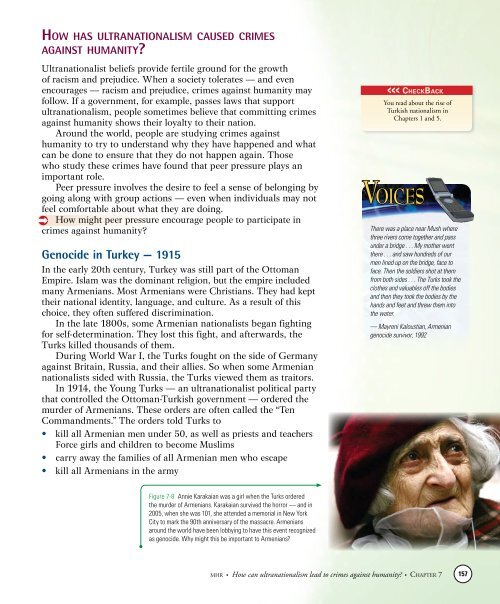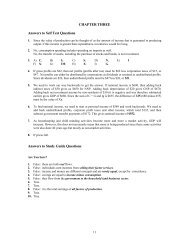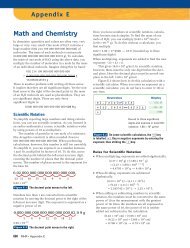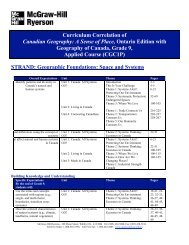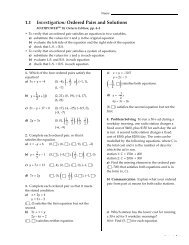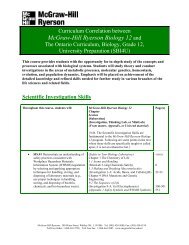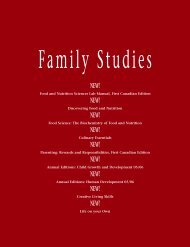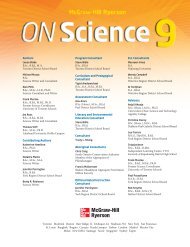Ultranationalism and Crimes against Humanity - McGraw-Hill Ryerson
Ultranationalism and Crimes against Humanity - McGraw-Hill Ryerson
Ultranationalism and Crimes against Humanity - McGraw-Hill Ryerson
You also want an ePaper? Increase the reach of your titles
YUMPU automatically turns print PDFs into web optimized ePapers that Google loves.
ho W h a s ultr anationalism c au s e d c r i m e s<br />
a g a i n s t h u m a n i t y?<br />
Ultranationalist beliefs provide fertile ground for the growth<br />
of racism <strong>and</strong> prejudice. When a society tolerates — <strong>and</strong> even<br />
encourages — racism <strong>and</strong> prejudice, crimes <strong>against</strong> humanity may<br />
follow. If a government, for example, passes laws that support<br />
ultranationalism, people sometimes believe that committing crimes<br />
<strong>against</strong> humanity shows their loyalty to their nation.<br />
Around the world, people are studying crimes <strong>against</strong><br />
humanity to try to underst<strong>and</strong> why they have happened <strong>and</strong> what<br />
can be done to ensure that they do not happen again. Those<br />
who study these crimes have found that peer pressure plays an<br />
important role.<br />
Peer pressure involves the desire to feel a sense of belonging by<br />
going along with group actions — even when individuals may not<br />
feel comfortable about what they are doing.<br />
How might peer pressure encourage people to participate in<br />
crimes <strong>against</strong> humanity?<br />
Genocide in Turkey — 1915<br />
In the early 20th century, Turkey was still part of the Ottoman<br />
Empire. Islam was the dominant religion, but the empire included<br />
many Armenians. Most Armenians were Christians. They had kept<br />
their national identity, language, <strong>and</strong> culture. As a result of this<br />
choice, they often suffered discrimination.<br />
In the late 1800s, some Armenian nationalists began fighting<br />
for self-determination. They lost this fight, <strong>and</strong> afterwards, the<br />
Turks killed thous<strong>and</strong>s of them.<br />
During World War I, the Turks fought on the side of Germany<br />
<strong>against</strong> Britain, Russia, <strong>and</strong> their allies. So when some Armenian<br />
nationalists sided with Russia, the Turks viewed them as traitors.<br />
In 1914, the Young Turks — an ultranationalist political party<br />
that controlled the Ottoman-Turkish government — ordered the<br />
murder of Armenians. These orders are often called the “Ten<br />
Comm<strong>and</strong>ments.” The orders told Turks to<br />
• kill all Armenian men under 50, as well as priests <strong>and</strong> teachers<br />
Force girls <strong>and</strong> children to become Muslims<br />
• carry away the families of all Armenian men who escape<br />
• kill all Armenians in the army<br />
Figure 7-8 Annie Karakaian was a girl when the Turks ordered<br />
the murder of Armenians. Karakaian survived the horror — <strong>and</strong> in<br />
2005, when she was 101, she attended a memorial in New York<br />
City to mark the 90th anniversary of the massacre. Armenians<br />
around the world have been lobbying to have this event recognized<br />
as genocide. Why might this be important to Armenians?<br />


